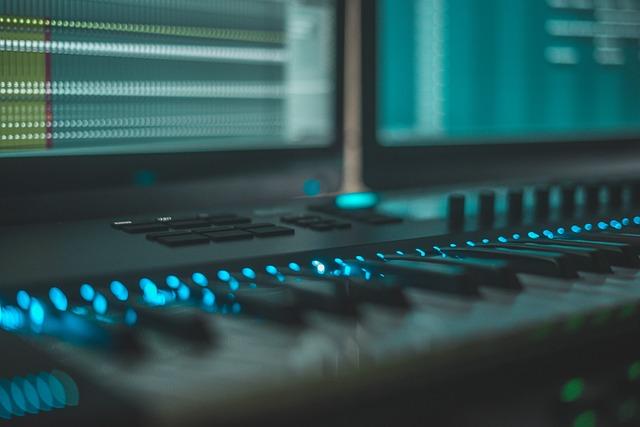In the ever-evolving world of digital content creation, YouTube has just dropped a bombshell that’s reshaping the landscape for creators everywhere. If you’ve been diligently uploading videos, pouring your heart into scripts, and building a loyal audience, you’ll want to pay attention. YouTube’s latest monetization update promises to shake things up, but what does it really mean for you? Are you ready to navigate the twists and turns of this new system? In this article, we’ll break down everything you need to know about the update, from the nitty-gritty details to the broader implications for your channel. Buckle up, because this could be a game-changer!
Understanding YouTube’s New 7-Day Appeal Window for Creators
Recently, YouTube has introduced a game-changing feature that’s set to alter the way creators handle demonetization. Imagine receiving that dreaded email that your channel has been demonetized—it’s like the floor just dropped out from under you, right? The current system was a race against the clock, with creators scrambling to appeal a decision that could take weeks to resolve, all the while losing precious revenue. But now, a 7-day appeal window gives you a fighting chance. As a creator, you can submit your appeal promptly, fighting back before your monetization disappears entirely. Think of it as a safety net, allowing you to address issues like reuse or repetitious content without the immediate threat of financial loss hanging over your head. It’s a way for you to sharpen your defense and communicate effectively with the YouTube reviewers.
However, there’s a catch—this 7-day opportunity isn’t a blanket solution for all suspension reasons. It’s specifically aimed at certain infractions, allowing creators to present their case proactively. If you find yourself demonetized, rather than being thrown into a frenzy, you now have a short grace period to produce content or evidence that explains your channel’s practices. This is revolutionary compared to the old timeline, which could leave you twiddling your thumbs worrying about your channel’s future. With the new appeal window, you can respond swiftly and retain your revenue stream, creating a more supportive environment for creators concerned about their livelihoods. But remember, beyond that week, you only have a total of 21 days to appeal, and if denied, you might be facing a lengthy stint away from the monetization game. this update symbolizes a step toward a more manageable and creator-friendly platform, giving you just a little more breathing room to protect your hard work.
Navigating the Monetization Maze: What You Need to Know
Facing a sudden demonetization notification can feel like being hit by a ton of bricks. The anxiety sets in as creators grapple with the uncertainty of their channel’s future. Traditionally, creators were left in a lurch, forced to scramble for an appeal within 21 days after the monetization status dropped abruptly. That waiting period stretched out like a bad road trip: you want to get there, but all you can do is sit and hope for the best. What makes this even more frustrating is the fact that the timeline could leave content creators without income for up to six weeks, especially if their appeal is ultimately accepted. You’ve poured your heart and soul into your channel, and in a matter of moments, everything seems to hang by a thread.
Enter the new update that aims to shift the narrative. Now, creators will have a crucial 7-day window to present their case while still enjoying the benefits of monetization. Think of it as a safety net that catches you before you fall completely. This new update allows you to clarify your content and address any misconceptions directly with YouTube’s reviewers. However, it’s important to note that this newfound defense isn’t a blanket solution; it only applies to certain types of infractions, such as reuse content or other less severe violations. For more serious troubles that could jeopardize the platform’s integrity, YouTube will still act swiftly. But the big takeaway here is that this 7-day grace period could just be the lifeline creators need, enabling them to keep the revenue flowing and fight back against unjust penalties smoothly.
Protecting Your Channel: Strategies to Prevent Demonetization
When it comes to safeguarding your channel from the threat of demonetization, it’s all about being proactive and staying informed. Here are a few strategies that can help you shield your revenue streams:
- Know the Rules: Familiarize yourself with YouTube’s community guidelines and monetization policies. Keeping these at the forefront of your content creation can prevent unintentional violations.
- Content Quality Control: Regularly analyze your videos for repetitive content or issues that could raise red flags. Consider soliciting feedback from your viewers or peers to identify areas of potential concern.
- Documentation and Transparency: Maintain an organized record of your content creation process. If you ever face issues, you’ll be prepared with the context needed to defend yourself.
- Engage Your Audience: Build a loyal community that can support you during tough times. Loyal viewers are more likely to rally around you if there’s an issue.
With the recent update allowing creators a seven-day window to appeal before facing demonetization, it’s crucial to act quickly. Keeping track of when issues arise will help you stay ahead of the curve. Think of it like catching a train before it leaves the station; if you jump on early with your appeal, you can potentially avoid a costly delay in your income. Here’s a simple table summarizing the key aspects of this new appeal process:
| Aspect | Details |
|---|---|
| Notification | Immediate email alert on potential demonetization |
| Appeal Window | 7 days to appeal before demonetization takes effect |
| Standard Appeal Period | 21 days total to submit an appeal |
| Response Time | Up to 14 days for YouTube to respond |
| Reinstatement Time | Potentially up to 30 days if the appeal is successful |
The Future of YouTube Monetization: Opportunities and Challenges Ahead
The landscape of YouTube monetization is rapidly evolving, and with that comes both new opportunities and daunting challenges for creators. One of the most exciting aspects of the recent update is the new 7-day appeal window. This feature allows creators to proactively defend their channels before any monetization penalties kick in. Gone are the days when a creator would receive a gut-wrenching email about demonetization, leaving them scrambling to put together an appeal in an emotionally charged state. With this new approach, creators can gather their thoughts, showcase their content style, and explain any potential misunderstandings. Imagine being given a lifeline just when you thought your hard work had been unceremoniously tossed aside!
However, it’s important to note that this shiny new feature isn’t a one-size-fits-all solution. The 7-day appeal opportunity is limited to specific suspension reasons, primarily focusing on less severe issues, such as content repetitiveness. Serious violations may still lead to immediate action without recourse, keeping the stakes high for creators. While this update can enhance the overall experience for many, it may also create hurdles, particularly for those whose channels face complex scrutiny. YouTube’s reputation for swift decisions regarding demonetization remains, as does the uncertainty creators face regarding their content’s future. The balance between creator expression and adherence to guidelines is a tightrope walk that both YouTube and its community will need to navigate thoughtfully moving forward.
Q&A
##
Q&A Section
Q: What is the recent update about YouTube’s monetization policy?
A: YouTube has rolled out a new feature that allows creators to appeal their channel’s suspension from the YouTube Partner Program before losing their monetization. Instead of instantly demonetizing channels, creators now have a 7-day window to provide additional information to YouTube reviewers before any loss of revenue occurs.
Q: How does the current process work if a channel gets demonetized?
A: Previously, when a channel was demonetized, it received an immediate notification, which could be quite shocking for creators. They could appeal this decision within 21 days, but it often took YouTube up to 14 days to respond, followed by a potential 30-day wait to reinstate monetization. This meant creators could lose up to 6 weeks of revenue, even if they were found to be innocent later on.
Q: What’s the appeal process for the new policy?
A: Under the new update, when a creator faces demonetization, they can appeal within a 7-day period while their channel is still monetized. This involves demonstrating their content creation process through a recorded video. This gives creators a chance to defend themselves without the immediate pressure of being demonetized first.
Q: Are there any limitations to this new 7-day appeal window?
A: Yes, the 7-day appeal window is not available for all suspension reasons. The new feature is likely targeted at specific cases, such as reuse or repetitious content issues. More severe violations will still prompt immediate demonetization without the opportunity for prior appeal.
Q: What happens if a creator’s appeal is rejected?
A: If the appeal is denied, the channel will face a suspension from the YouTube Partner Program for 90 days. While there is still the traditional 21-day window to appeal, the 7-day advance notice gives creators a crucial opportunity to act quickly before facing demonetization.
Q: Why is this new approach considered a positive step for creators?
A: This update is viewed as a significant improvement because it allows creators to gather their thoughts, diagnose the issue, and potentially rectify the situation before facing financial consequences. It adds a layer of flexibility and communication between YouTube and its creators, enhancing the overall experience.
Q: Will YouTube consider similar policies for other issues, like invalid traffic?
A: While that remains to be seen, many creators hope that YouTube will introduce similar measures for issues such as invalid traffic, as they feel these scenarios also require better collaboration and understanding between the platform and its users.
Q: How can creators prepare themselves for these changes?
A: Creators should familiarize themselves with YouTube’s policies, especially on content that can lead to demonetization. Being proactive, maintaining clear communication with their audience, and being prepared to present their content creation process will be key in navigating this new appeal mechanism effectively.
This update shows that YouTube is beginning to focus more on supporting its creators and allowing them a chance to defend their hard work. It’s definitely a shift towards a more collaborative relationship, but it’s crucial for creators to stay informed and ready to adapt!
Concluding Remarks
And there you have it—the lowdown on YouTube’s latest monetization update! It’s quite a shift in the landscape for creators, and honestly, it feels like a breath of fresh air after the anxiety that comes with the prospect of sudden demonetization. Just imagine: instead of receiving that gut-wrenching email telling you your monetization status is gone in an instant, you now have a fighting chance. A whole seven days to present your case and possibly keep the cash flowing into your channel—what a game-changer!
While this new policy is a step in the right direction, it’s important to remember that it’s not an all-encompassing solution. It’s got its limits, only working for certain suspension reasons. Still, it’s refreshing to see YouTube opening the gates for a more thoughtful appeals process, allowing creators like you to protect your hard-earned work and creativity a bit better. It’s an opportunity to stand up and say, “Hey, wait a second! I deserve a shot at making this right.”
Now, as we move forward, it’ll be fascinating to see how this unfolds and whether YouTube continues to evolve its policies in favor of content creators. So, what do you think? Will this new update change how you approach your channel? Have you faced any unpleasant surprises with YouTube’s monetization policies in the past? We’d love to hear your thoughts and experiences in the comments. Let’s keep the conversation going and support each other in this ever-changing world of online content creation. Here’s to navigating the highs and lows together—happy creating!


